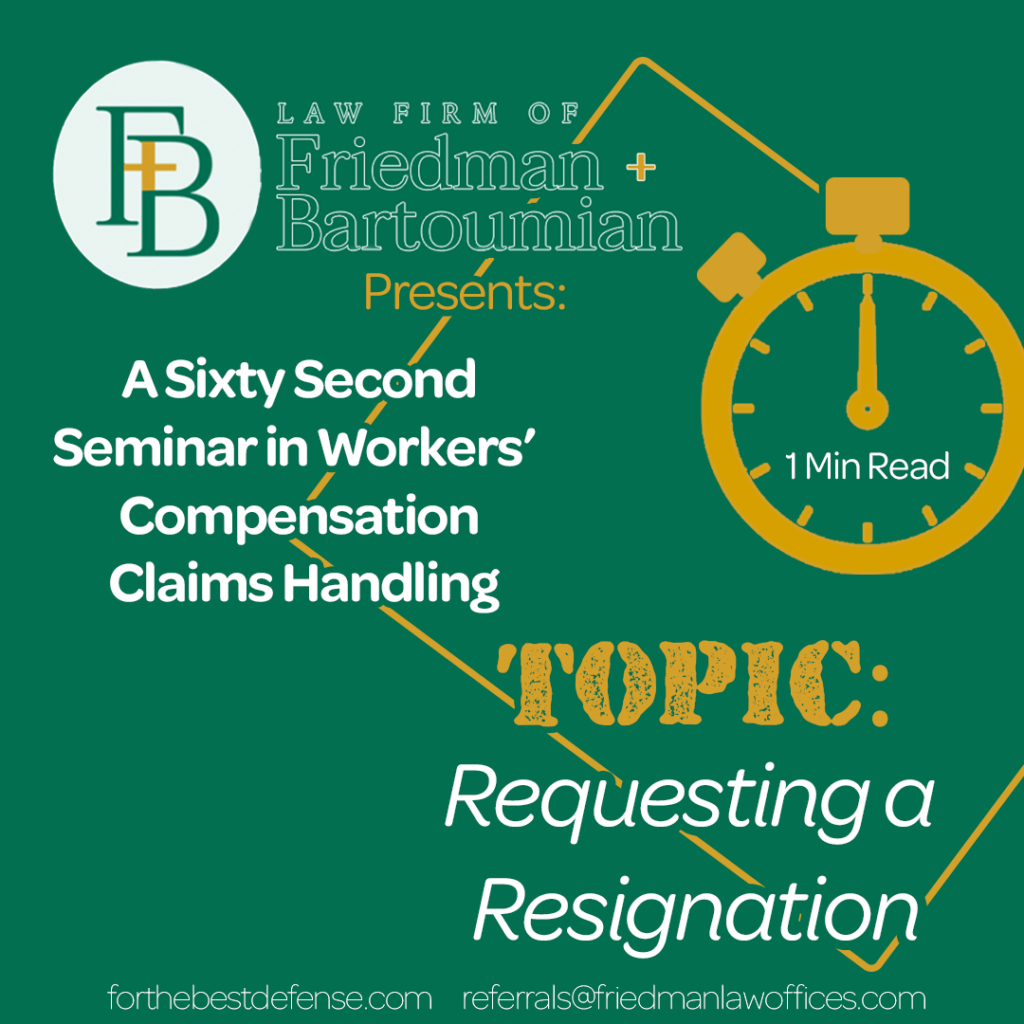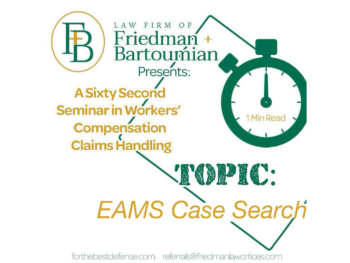
For years, it was a common practice for employers to require a resignation before settling a workers’ compensation claim by Compromise and Release (C&R). However, all that changed on 1/1/2020 when Assembly Bill 749 was enacted, amending Code of Civil Procedure § 1002.5(a), prohibiting mandatory resignation as a condition to the settlement of an employment dispute, including a claim for workers’ compensation benefits. Although AB 749 has now been on the books for several years, employers continue to instruct their attorneys to request a resignation when settling a comp claim. Counsel often responds by advising the employer that a resignation is prohibited by law. The purpose of today’s blog is to point out that these attorneys could not be more wrong, as we will address and clarify what CCP § 1002.5(a) says about resignation.
CCP § 1002.5(a) prohibits requiring a resignation from employment as a condition to the settlement of an employment dispute. The law also forbids a required agreement prohibiting or otherwise restricting the aggrieved employee from future employment with the employer, parent company or subsidiary. What this means is that an employee cannot be forced to resign, nor can they be forced to agree to never re-apply for work at the company, or at its parent or subsidiary company, as a condition of settling a workers’ compensation claim.
However, there is absolutely nothing in the law that prohibits an employer from requesting a resignation. There is a huge legal difference between requiring a resignation as opposed to requesting one. In that regard, the California Court of Appeal in Denise Kennedy v. MUFG Union Bank (2020) 85 CCC 116, found it was perfectly legal for an employer to request a voluntary resignation as part of a workers’ compensation settlement.
Again, it is not allowed to require a resignation, but it is perfectly legal to request one. Should an injured worker refuse to resign, the parties are then free to settle the claim by stipulations; however, via stipulations, the injured worker does not receive a lump sum payout. Based on past experience, once injured workers realize they will receive far less money when settling by stipulations, as opposed to settling by C&R, they will change their mind and offer to voluntarily resign in order to receive the higher valued C&R settlement. It will be the injured worker’s decision to make. If an employer wishes to further protect itself against any misunderstandings, a sentence can be added to the settlement documents or the resignation notice stating the employee’s resignation is voluntary and not a requirement for settlement of the workers’ compensation case.
Therefore, if your attorneys are advising that they cannot request a resignation in your behalf, feel free to come over to F+B where we will gladly request a resignation for you when settling a comp claim.


 Lien Tactics: A 60-Second Seminar in Workers’ Compensation Claims Handling
Lien Tactics: A 60-Second Seminar in Workers’ Compensation Claims Handling
Leave a Reply